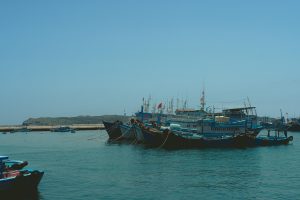The Impact of Overtourism on Popular Destinations
Welcome to the age of overtourism, where popular destinations are struggling to cope with the influx of tourists. Overtourism refers to the negative impacts of tourism that occur when there are too many visitors in a particular destination, often resulting in overcrowding, environmental degradation, and cultural exploitation. As travelers, we often dream of visiting these idyllic places, but we must also consider the detrimental effects our presence may have on these destinations. In this article, we will explore the impact of overtourism on popular destinations and how it is affecting the local communities and their environment.
The Rise of Overtourism
Overtourism is not a new phenomenon. However, in recent years, it has become a growing concern for many popular destinations around the world. The rise of low-cost airlines, online booking platforms, and social media have made it easier for travelers to visit these destinations. As a result, many popular tourist spots are now facing an overwhelming number of visitors, causing strain on their infrastructure and resources.
Some of the most popular destinations that have been affected by overtourism include Barcelona, Venice, Bali, and the Galapagos Islands. These places are known for their unique culture, scenery, and attractions, which have attracted tourists in droves. However, the high number of visitors has led to issues such as overcrowding, environmental degradation, and strained local resources.
The Negative Impacts of Overtourism
Environmental Degradation
One of the most significant impacts of overtourism is the strain it puts on the environment. Popular destinations are often fragile ecosystems that cannot withstand the high number of visitors. For example, the Phi Phi Islands in Thailand have seen a dramatic decrease in their coral reef due to unregulated snorkeling and diving activities. Additionally, the sheer number of tourists in these destinations has led to increased pollution, littering, and damage to natural habitats.
Cultural Exploitation
Another concerning impact of overtourism is the exploitation of local culture. The influx of tourists has led to the commercialization of cultural traditions and practices, which are often adapted to cater to the demands of visitors. This can result in the loss of authenticity and cultural identity, as well as contribute to the erosion of traditional ways of life for local communities.
Strain on Local Resources
Popular destinations are often not equipped to handle the high volume of visitors. As a result, local resources such as water, energy, and food are strained, leading to shortages and increased prices. This can have a significant impact on the livelihoods of locals, as they may struggle to afford basic necessities due to the influx of tourists.
The Solutions to Overtourism
The alarming impacts of overtourism have prompted many popular destinations to implement measures to mitigate its effects. Some solutions include implementing tourist quotas, limiting the number of cruise ships, and promoting sustainable tourism practices. In some cases, governments have even resorted to closing popular attractions or implementing a tourism tax to manage the number of visitors.
As travelers, we can also play a role in reducing the impact of overtourism. We can choose to support local businesses, avoid peak seasons, and respect the local culture and environment. By being mindful of our actions, we can help preserve these destinations for future generations to enjoy.
In Conclusion
Overtourism is a growing concern for many popular destinations, and its negative impacts are widespread. It is up to us, as travelers, to be responsible and considerate of the places we visit. By supporting sustainable tourism practices and respecting the local culture and environment, we can help alleviate the strain on these destinations and ensure that they remain a beautiful and authentic place to visit for years to come.









